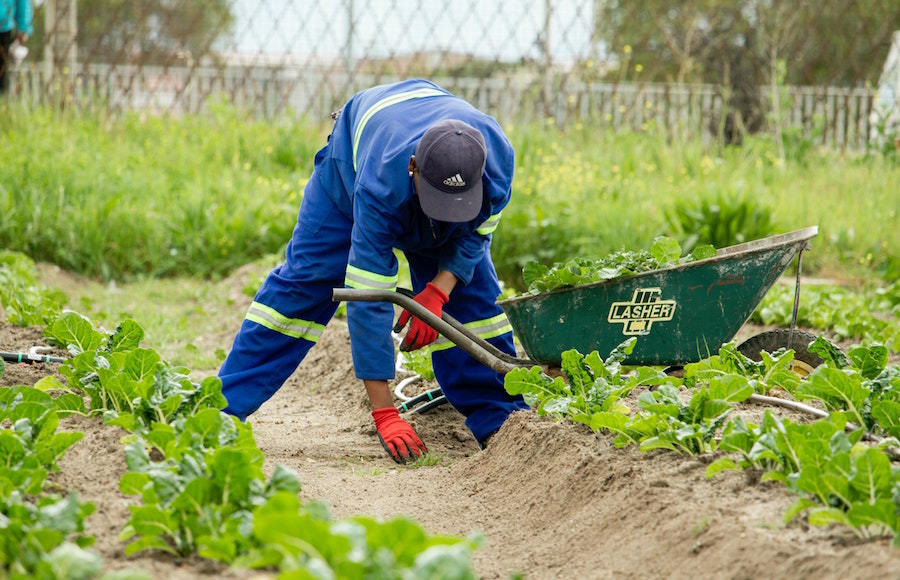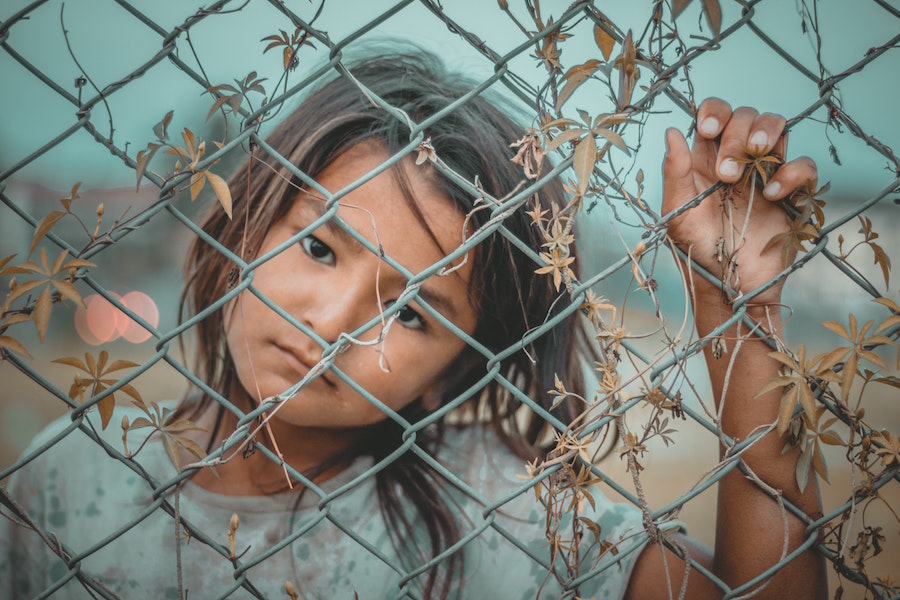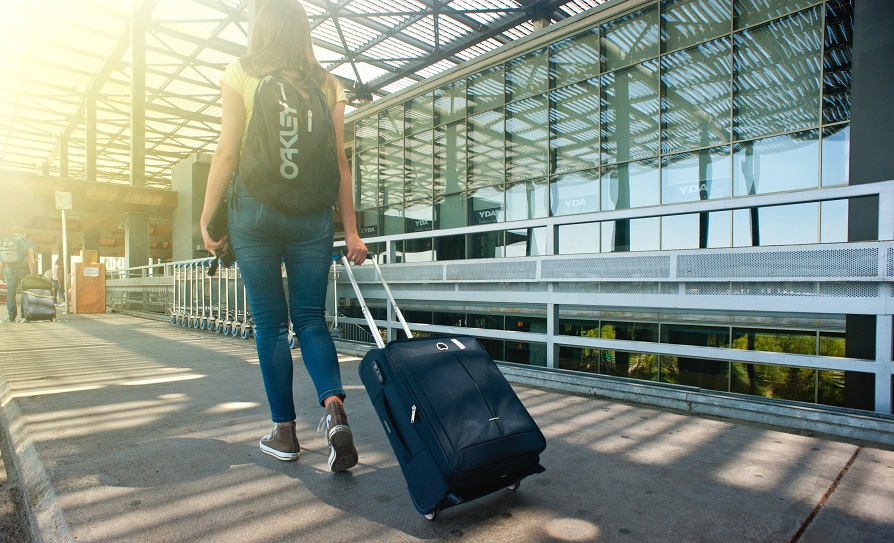Canada Sets Aside $50 Million For Foreign Workers Requiring Self-Isolation
Employers Hiring Foreign Workers Receive Funding to Help Them Comply With COVID-19 Measures
In an effort to keep foreign workers safe upon their arrival in Canada during the COVID-19 pandemic, the federal government has allocated $50 million in funding that will go towards helping employers comply with mandatory public health measures.
The funding will help employers meet health regulations that require them to keep foreign workers safe during the mandatory two-week quarantine period for anyone arriving in Canada from abroad during the pandemic.
While Canada has shut down its borders and is barring anyone from entering the country that is not a Canadian citizen, work permit holders have been exempted from this rule as they are essential to the food and agricultural sector – particularly fruit and vegetable farms and fish, seafood, and meat processing plants – which had already experienced severe labour shortages prior to COVID-19. In fact, more than 60 per cent of all foreign workers in Canada work in the agricultural sector.
“Temporary foreign works have long been key to our food supply,” said Marco Mendicino, Minister of Immigration in a recent press release. “We will work with farmers and food processing employers to ensure they get the workers they need and that plans are in place to meet mandatory isolation requirements.”
Going forward though, any foreign workers arriving in Canada must follow certain measures, including a 14-day isolation period at a location of their choice as soon as they reach their Port of Entry. Any travelers that are unable to present a credible quarantine plan – even if they are not showing symptoms of COVID-19 – will be required to spend the two-week isolation period in a hotel.
Employers are required to provide newly arrived foreign workers with transportation and accommodations along with access to food and basic sanitation supplies. They must monitor the health of any workers who are self-isolating regularly and cannot ask foreign workers to carry out work during the 14-day isolation period. However, they must still provide full pay and benefits.
To help employers meet these requirements, the government will provide up to $1,500 for each temporary foreign worker as long as the Quarantine Act is in force and the isolation protocol is in place. The funding is conditional on employers not violating the 14-day isolation or any other public health order. Employers and workers who do not comply will face fines, jail time or both.
Canada Allows Study Permit Holders to Obtain Post Graduation Work Permits After Completing Online Courses
Canada Exempts International Students from In-Class Course Work In Wake of COVID-19
While the COVID-19 pandemic has had a detrimental impact on the state of immigration in Canada, some good news is that study permit holders will still be able to begin their study programs through online coursework and even apply for a Post Graduation Work Permit (PGWP) after completion.
Due to the COVID-19 pandemic, classrooms across Canada have shut down, with students continuing their education through online learning in order to comply with coronavirus prevention measures. As a result, Immigration, Refugees and Citizenship Canada has decided to make this option available to study permit holders already enrolled in courses while allowing them to still be eligible for a PGWP.
The new rules apply to both students who currently have a study permit or were accepted into a program set to begin in May or June but are unable to travel to Canada due to travel restrictions.
A PGWP allows international students to obtain employment and work in Canada for up to three years after completing their post-secondary program and eventually apply for permanent residence. This is a popular option as it gives newcomers the work experience needed to be eligible for an economic class immigration program and apply for permanent residency.
It’s estimated that 60 per cent of Canada’s international students go on to apply for a post graduation work permit, and one-quarter of the 90,000 Express Entry applicants that received an invitation to apply in 2018 were former study permit holders.
Prior to the pandemic, studying online could have rendered a study permit applicant ineligible for a PGWP, as international students are typically required to study in Canada full-time in a program longer than eight months in order to be eligible.
This temporary reform is yet another step taken by Canada to make its immigration policies more flexible and avoid disrupting international students’ plans during the COVID-19 pandemic and preventing them from obtaining a PGWP upon graduation.
Unfortunately, international students that were approved for a study permit after March 18 are currently not exempt from Canada’s travel ban, which is expected to last until June 30.
However, study permit holders that are unable to travel to Canada will be able to begin their studies online outside Canada and complete up to half of their program while abroad if travel restrictions are not lifted sooner.
Alberta Launches New Immigration Streams For Startups and Entrepreneurs
Alberta Announces New Immigration Strategy to Fill Labour Market Gaps
While most news regarding immigration in Canada has had a dark shadow cast over it in recent weeks due to the COVID-19 pandemic, a bit of good news has come out of the province of Alberta.
As announced in the recently-released provincial budget, Alberta is in the process of developing a new immigration strategy titled the Alberta Advantage Immigration Strategy, that will include two new business immigration streams for start-ups and entrepreneurs.
Alberta will also launch a separate plan to help new immigrants find work at their skill level more quickly. This will be called the Fairness for Newcomers Action Plan.
The overall goal of these new immigration initiatives is to help fill gaps in Alberta’s labour market and create more jobs.
“One of the biggest barriers to growth in Alberta’s digital economy is a shortage of people with relevant skills and experience,” read the official budget statement.
Working alongside the Alberta Immigrant Nominee Program, these two new streams will be known as the Foreign Graduate Entrepreneur Program and Startup Visa Stream.
As it stands, not much is known about these new initiatives, however, the provincial budget statement did outline what types of candidates the Alberta government is hoping to attract.
For the Startup Visa Stream, the government will target foreign student graduates in the United States and offer fast track processing for “qualified graduates of top universities if they commit to launch a startup enterprise in Alberta, with a bridge to permanent residency through the Alberta Immigrant Nominee Program.”
For the Foreign Graduate Entrepreneur Program, Alberta is aiming to attract highly qualified foreign students to Alberta colleges and universities and “offer similar fast track immigration opportunities for foreign nationals who have graduated from Alberta post-secondary institutions.”
Canada Closes its Border to Refugees
Canada to Turn Back Asylum Seekers at the Border During COVID-19 Crisis
As of midnight March 24th, Canada has completely closed its border to refugees. The government had previously said it would keep unofficial border points open to refugees and keep them in isolation for a two-week period, but on March 24th, that decision was reversed.
In an agreement with the United States, both countries agreed to turn back asylum seekers who try to cross their borders. The only people who will be able to proceed into Canada and make refugee claims are U.S. citizens, stateless habitual residents of the U.S., foreign national parents or guardians of minor U.S. citizens who are accompanying them in making their claims, or unaccompanied foreign nation minors.
Why Do Refugees Cross at Unofficial Border Points?
Refugees coming from the United States cross the border at unofficial border crossings to be able to make a refugee claim in Canada. The most popular of these points is at Roxham Road connecting Quebec to New York State. In 2004, Canada signed a Safe Third Country Agreement with the United States. This agreement requires refugee claimants to make their claims in the first “safe” country they arrive in and deems the United States a safe country. An exception to this agreement allows refugees to make claims in other countries if they enter at unofficial border crossings.
Does This Move Contravene Canadian or International Law?
Under the Quarantine Act, the government can make an order prohibiting entry into Canada of anyone, if is of the opinion that there is an outbreak of a communicable disease in that country and the introduction of the disease to Canada would pose a “severe risk to public health,” or the entry may contribute or introduce the spread of the disease and there are no reasonable alternatives to avoid it. Closing the border to risk the spread of COVID-19 would most likely meet those criteria. The order must be for a specified period and can be renewed if necessary.
Canada is a signatory of the 1951 Convention relating to the Status of Refugees. This agreement requires Canada to not send back refugees to where they may face persecution. This obligation is enshrined federally Immigration and Refugee Protection Act. In sending refugees back to the United States, it may mean they will be deported, and this obligation will not be met.
According to a statement from Canada’s Public Safety Minister’s office the changes show that the “Quarantine Act provisions take precedent over IRPA and the STCA”.
What Are the Effects of this Move?
Closing the Canada-U.S. border to refugees puts them directly at risk. Refugees will have a strong probability of being put in detention in the United States and possibly deported to areas where they will be at risk.
There are also risks of refugees trying and finding alternative routes to enter Canada. Canada and the United States share the longest border in the world. It is impossible to fully monitor this border, and the closure of other entry points will likely lead asylum seekers to enter at other points.
This means that they will be unmonitored and could lead to further spread of COVID-19. It is likely that due to their lack of status they would also have trouble getting treatment if they fall ill with the disease and would increase its spread. Craig Damian Smith, “an expert in the forced migration of refugees” argues that strong border controls aimed at stopping the entry of refugees often lead to an increase in smuggling and human trafficking across borders.
The most dangerous of these effects are that the government’s move may not be rescinded after the COVID-19 situation is under control and the closure of these unofficial crossings may become permanent.
Sources
https://globalnews.ca/news/6710312/coronavirus-border-closure-international-law/
https://www.google.ca/amp/s/www.cbc.ca/amp/1.5505540
https://www.nytimes.com/2020/03/20/world/canada/trudeau-asylum-seekers-coronavirus.html
https://ccrweb.ca/en/information-refugees
https://laws-lois.justice.gc.ca/eng/acts/q-1.1/page-6.html#h-419611
Canada Announces Travel Exemptions for Some International Students, Permanent Residence Applicants, and Foreign Workers
Foreign Workers, Study Permit Holders Still Able to Enter Canada During COVID-19 Crisis
Less than one week after closing Canada’s borders to help prevent the further spread of COVID-19, the Canadian government is taking steps to ensure that some international students and foreign workers are still able to enter the country.
The federal government’s decision to close Canada’s borders to non-essential travellers made last week drew widespread concern over what would happen to foreign workers and study permit holders intending to come to Canada to work, study or live permanently.
Fortunately, though, those concerns have been somewhat dispelled as the federal government announced travel exceptions for some foreign nationals who have already committed to working, studying, or making Canada their home.
The exemptions include seasonal agricultural workers, fish and seafood workers, caregivers and all other temporary foreign workers, according to Immigration, Refugees and Citizenship Canada (IRCC).
"Temporary foreign workers are absolutely necessary for our farms and our agribusiness, filling over 60,000 jobs across the country,” said Agriculture Minister Marie-Claude Bibeau in response to exemptions being put in place. "Our very food security depends on them."
According to CBC, travel exemptions will also be put in place for international students who already held study permits or had been approved for one before the border closure and travel restrictions occurred on March 18.
Furthermore, permanent resident applicants that had been approved prior to the travel restrictions but had not yet travelled to Canada will also be exempted.
However, despite the exemptions being put in place, it’s also important to note that Immigration, Refugees and Citizenship Canada is advising that anyone who falls under this exception should not be travelling right away.
Foreign nationals coming to Canada through these exemptions will be subject to screening measures before travel and must isolate for 14 days after arriving in Canada.
How COVID-19 Measures Are Affecting Asylum Seekers
While this is a commendable move from the government, it’s concerning to note that such exceptions will not be made for vulnerable refugees seeking asylum.
Along with the travel exemptions, Canada recently made the decision to turn away asylum seekers attempting to enter Canada outside official border points. Essentially, this decision blocks asylum seekers from crossing into Canada and filing refugee claims under Canada's Safe Third Country Agreement (STCA).
For those who are unfamiliar, the STCA requires asylum seekers to make their refugee claims in the first "safe" country they step foot in (in this case either Canada or the U.S.) However, there is an exception which allows asylum seekers to make a refugee claim in the second “safe” country they arrived in, if they came through an unofficial border point.
Public Safety Minister Bill Blair told CBC that other exceptions in the STCA regarding asylum seekers attempting to enter Canada through official points of entry would also be suspended.
This means that the only asylum seekers that will be able to file a refugee claim during the ongoing COVID-19 pandemic include:
- U.S. citizens
- Stateless habitual residents of the U.S.
- Foreign national parents or guardians of a minor U.S. citizen who are accompanying them in making a claim.
- Unaccompanied foreign national minors
The government’s decision regarding refugees is highly controversial and has already been criticized by the Canadian Association of Refugee Lawyers and Amnesty International Canada, which labelled the policy as a "shameful breach of international law" that would put even more lives at risk during the COVID-19 pandemic.
Because, while the current situation in Canada and around the world is very serious and requires government action, it’s crucial that these worrisome policies and travel restrictions are not preventing vulnerable refugees fleeing dangerous situations from seeking asylum in Canada.





